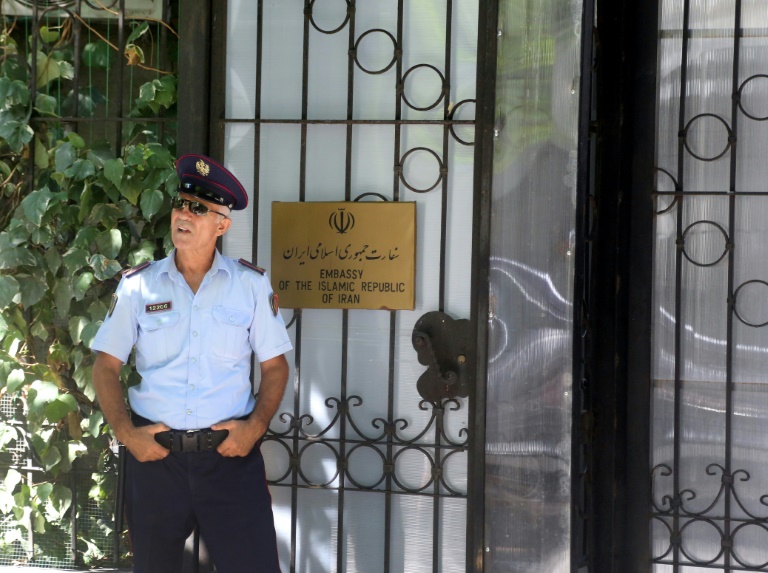Albania blamed Iran for the July attack and on Wednesday cut diplomatic ties over the affair
Albania has suffered a renewed cyberattack, the country’s interior ministry said on Saturday, blaming Iran which Tirana also accused of an earlier assault on its digital systems.
“The national police’s computer systems were hit Friday by a cyberattack which, according to initial information, was committed by the same actors who in July attacked the country’s public and government service systems,” the ministry said in a statement.
“In order to neutralise the criminal act and secure the systems,” the authorities have shut down computer control systems at seaports, airports and border posts, the statement said.
In a tweet, Prime Minister Edi Rama denounced “another cyberattack (committed by) the same aggressors already condemned by Albania’s friendly countries and allies.”
Albania blamed Iran for the July attack and on Wednesday cut diplomatic ties over the affair.
The two countries have been bitter foes for years, since the Balkan state began hosting members of the opposition People’s Mujahedeen of Iran, or Mujahedeen-e-Khalq (MEK), on its soil.
Rama on Wednesday accused Iran of directing a cyberattack against Albanian institutions on July 15 in a bid to “paralyse public services and hack data and electronic communications from the government systems”.
It was the first time Tirana spoke about the alleged attack.
“The Council of Ministers has decided on the severance of diplomatic relations with the Islamic Republic of Iran with immediate effect,” said Rama.
“The said attack failed its purpose. Damages may be considered minimal compared to the goals of the aggressor. All systems came back fully operational and there was no irreversible wiping of data.”
The prime minister went on to say that Iranian diplomats and embassy staff had 24 hours to leave the country.
– Iranian denials –
Iran rejected the accusation it was behind the cyberattack as “baseless” and called Albania’s decision to sever diplomatic ties “an ill-considered and short-sighted action”.
“Iran as one of the target countries of cyberattacks on its critical infrastructure rejects and condemns any use of cyber space as a tool to attack the critical infrastructure of other countries,” its foreign ministry said.
The US announced sanctions Friday on Iran’s Ministry of Intelligence and Security and its minister Esmail Khatib over Tehran’s alleged involvement.
The Islamic republic has also been targeted by cyberattacks, most notably in 2010 when the Stuxnet virus — believed to have been engineered by Israel and the US — infected its nuclear programme.
Albania agreed in 2013 to take in members of the MEK at the request of Washington and the United Nations, with thousands settling in the Balkan country over the years.
Following the collapse of its communist government in the early 1990s, Albania has transformed into a steadfast ally of the United States and the West, officially joining NATO in 2009.
The MEK backed Ayatollah Ruhollah Khomeini in the 1979 revolution that ousted the shah but rapidly fell out with the new Islamic authorities and embarked on a decades-long campaign to overthrow the regime.
The MEK regularly hosts summits in Albania that have long attracted support from conservative US Republicans, including former vice president Mike Pence, who delivered a keynote address at an event in June.
A month later, the group postponed another summit citing unspecified security threats targeting the event.









